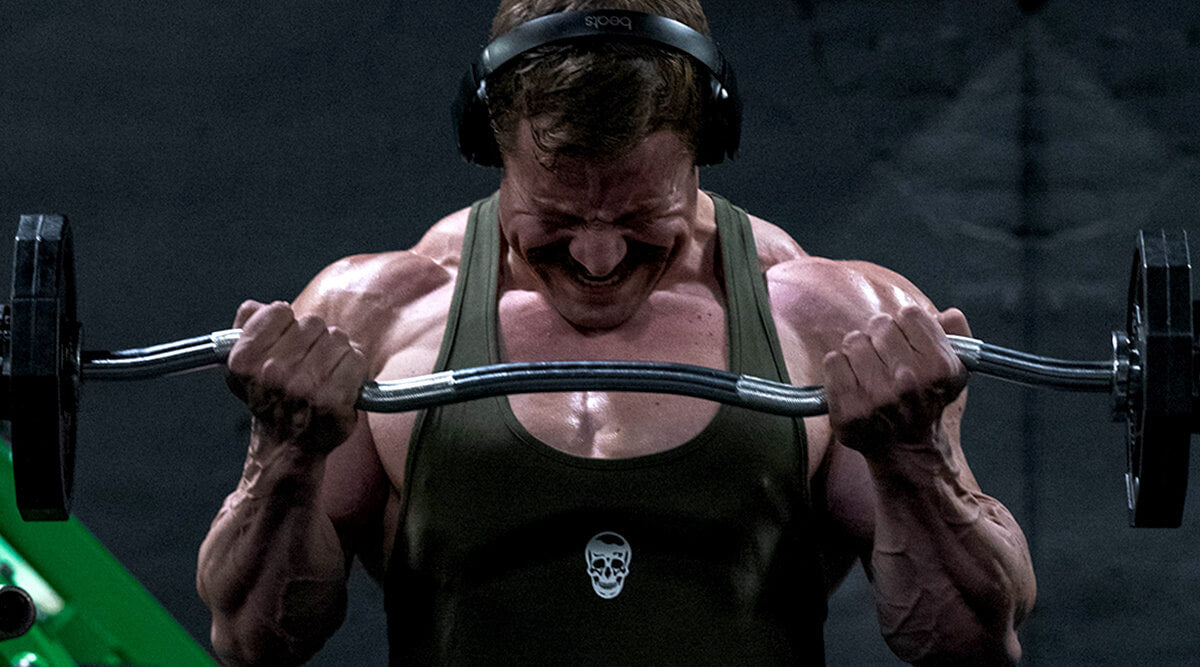Nutrition is Your Ally in Muscle Building
Are you ready to take your muscle-building journey to the next level? While hitting the gym is undoubtedly crucial, it's only half the battle. To truly maximize your gains, you need to pay close attention to your nutrition. After all, muscles aren't built on sweat alone; they thrive on a foundation of quality nutrients.
But with countless options available, it's easy to feel overwhelmed. That's where we come in. In this comprehensive guide, we'll walk you through the essential foods and supplements for bulking up effectively. Whether you're a seasoned fitness enthusiast or just starting your journey, we've got you covered. Get ready to fuel your gains and sculpt the physique of your dreams.
Detailed Overview of This Guide
In this comprehensive guide, we’ll unpack essential information like:
- Essential Macronutrients: Their roles and optimal ratios for bulking
- Calorie Surplus: How to achieve it smartly without gaining unwanted fat
- Clean vs Dirty Bulking: A side-by-side comparison to help you choose wisely
- Top 12 Bulking Foods: The best choices to incorporate into your diet for maximum gains
What are Macronutrients?
Before you stock up your fridge, let’s talk basics—macronutrients. They are the foundation of your bulking diet:
- Proteins: The chief architects of muscle repair and growth
- Carbohydrates: The main energy providers for your high-intensity workouts
- Fats: Crucial for hormonal functions and nutrient absorption
Best Macronutrient Ratio
Finding the perfect balance of macronutrients is key to optimizing your bulking efforts. While individual needs may vary, a general guideline suggests allocating approximately 30-35% of your daily calories to fats, 20-25% to protein, and the remainder to carbohydrates. This ratio ensures an ample supply of energy and nutrients to support muscle growth while minimizing the risk of excess fat accumulation.

Importance of Calorie Surplus
But it's not just about hitting your macronutrient targets; achieving a calorie surplus is equally crucial for effective bulking. By consuming slightly more calories than your body expends, you provide the necessary fuel for muscle repair and growth.
However, it's important to strike a balance – a modest surplus of 250-500kcal per day is sufficient to support muscle gain without excessive fat deposition. Now that we've established the fundamentals, let's explore each macronutrient in detail and uncover how to harness their power to fuel your bulking process effectively.
1) Protein
At the heart of muscle building, protein commands special attention in your bulking diet.Not only does it provide the essential amino acids necessary for muscle repair and growth, but it also plays a crucial role in satiety, keeping you feeling full and satisfied. Aim to include high-quality protein sources such as lean meats, poultry, fish, eggs, dairy, and plant-based options like tofu, tempeh, and legumes in each meal. Spread your protein intake evenly throughout the day, aiming for approximately 1.6g/kg of body weight per day to optimize muscle protein synthesis and support recovery.
2) Carbohydrates
Fueling your workouts and replenishing glycogen stores are the primary roles of carbohydrates in your bulking diet. While complex carbohydrates provide sustained energy and fiber, simple carbohydrates offer quick energy for intense training sessions. Strike a balance by incorporating a variety of whole grains, fruits, vegetables, and starchy foods like potatoes and rice into your meals. Aim to consume carbohydrates before and after your workouts to maximize performance and recovery, while also ensuring adequate intake throughout the day to support overall energy levels.
3) Fats
Despite their often misunderstood reputation, fats are essential for hormone production, nutrient absorption, and overall health – especially during bulking. Opt for sources of healthy fats such as avocados, nuts, seeds, olive oil, and fatty fish to support muscle growth and optimize hormone levels. While it's important not to overdo it, incorporating a moderate amount of fats into your diet can help you meet your calorie goals and maintain optimal health.
4) Putting It All Together
Now that you understand the importance of each macronutrient in your bulking journey, it's time to put theory into practice. Focus on creating balanced meals that combine protein, carbohydrates, and fats in appropriate proportions to support your goals. Experiment with different food sources and meal timings to find what works best for your body and training regimen. Remember, consistency is key – stick to your nutritional plan, stay hydrated, and prioritize whole, nutrient-dense foods to fuel your gains and unlock your full potential.

Clean vs Dirty Bulking
Choosing how to bulk can affect your results and health. Let’s compare:
What is clean bulk? A clean bulk focuses on high-quality, nutrient-dense foods and precise calorie management.
It promotes steady, sustainable muscle growth and minimal fat gain. Clean bulking epitomizes precision and mindfulness in your nutritional approach. It involves meticulously tracking calorie intake and prioritizing nutrient-dense, whole foods to fuel muscle growth while minimizing fat gain.
What is dirty bulk? A dirty bulk emphasizes rapid weight gain, allowing for high-calorie foods that are not necessarily nutrient-dense.
Faster muscle gain, but with a higher risk of unwanted fat. Dirty bulking adopts a more laissez-faire attitude, eschewing calorie counting in favor of unrestricted eating. While this approach may accelerate muscle gains in the short term, it often entails consuming high-calorie, less nutritious fare, potentially compromising long-term health.
Pros and Cons: Dirty Bulk vs Clean Bulk
Clean bulking offers the promise of sustainable gains and improved overall health. By prioritizing nutrient-rich foods and maintaining a modest caloric surplus, you can minimize fat accumulation while steadily building lean muscle mass. However, the meticulous tracking and slower progress associated with clean bulking may deter some individuals from seeking rapid results.
Conversely, dirty bulking appeals to those craving expedited muscle growth and a more relaxed approach to nutrition. With no strict calorie targets, you're free to indulge in calorie-dense treats without restraint. Yet, this freedom comes at a cost – the risk of excessive fat gain and potential health repercussions looms large, overshadowing the allure of rapid muscle accrual.
Choosing the Right Bulking Diet
Ultimately, the decision between clean and dirty bulking hinges on your individual goals, preferences, and tolerance for dietary rigidity. If you prioritize long-term health and sustainable progress, clean bulking may be your ideal match. However, if rapid muscle gains are your primary aim and you're willing to accept potential trade-offs in health and aesthetics, dirty bulking might hold greater appeal.
Regardless of your chosen path, the key lies in finding a balance that aligns with your objectives while prioritizing overall well-being. Armed with this understanding, you can navigate your bulking journey with confidence, armed with the knowledge to optimize your gains while safeguarding your health for the long haul.

Best Foods for Bulking
To optimize muscle growth and achieve your fitness goals, it's essential to adopt a strategic approach to nutrition. To fuel your muscle-building efforts effectively, we've compiled a list of the top 12 powerhouse foods that will support your gains and propel you toward success. Below are quick and expanded reasons why these food are essential for muscle growth:
- Eggs: High-quality protein and essential nutrients
- Milk: Ideal for post-workout recovery
- Nuts and Nut Butter: Healthy fats and protein
- Lean Meats: Premium source of protein
- Whole Grains: Sustained energy to fuel your workouts
- Avocado: Healthy fats and high calories
- Quinoa: Complete protein and great carb source
- Greek Yogurt: Muscle-repairing protein
- Cottage Cheese: Slow-digesting protein
- Plant-based Oils: Healthy fats for hormone regulation
- Cheese: A delicious source of protein and healthy fats
- Dry Fruits: High in calories, fiber, and natural carbohydrates
- Fish: Packed with protein and omega-3 fatty acids
- Dark Chocolate: Rich in antioxidants and monounsaturated fats
1) Eggs: A nutritional powerhouse, eggs are packed with high-quality protein, essential amino acids, and a plethora of vitamins and minerals. Whether scrambled, boiled, or incorporated into your favorite recipes, eggs are a versatile and convenient addition to any bulking diet.
2) Milk: A classic bulking staple, milk is rich in protein, carbohydrates, and essential nutrients, making it an ideal post-workout beverage for replenishing glycogen stores and supporting muscle repair. Whether consumed on its own or blended into shakes and smoothies, milk provides a convenient and effective way to boost your calorie intake and fuel your gains.
3) Nuts and Nut Butter: Rich in healthy fats, protein, and essential micronutrients, nuts and nut kinds of butter provide a calorie-dense snack option ideal for fueling your bulking efforts. Whether enjoyed on their own or paired with fruit or whole-grain bread, these nutrient-packed treats are sure to satisfy your hunger and support muscle growth.
4) Lean Meats: A premium source of protein, lean meats such as chicken breast, turkey, and lean beef are essential for muscle building. Packed with essential nutrients and amino acids, lean meats provide the fuel your muscles need to thrive during intense workouts.
5) Whole Grains: Packed with complex carbohydrates, whole grains provide a sustained energy supply to fuel your workouts and support muscle growth. Incorporate whole grains such as oats, brown rice, and quinoa into your meals to optimize your carbohydrate intake and enhance your bulking efforts.
6) Avocado: Packed with heart-healthy fats and antioxidants, avocado is a calorie-dense food that adds creamy texture and flavor to your meals. Whether mashed onto toast, blended into smoothies, or sliced onto salads, avocado is a versatile ingredient that enhances both the taste and nutritional value of your bulking diet.
7) Quinoa: A complete protein source, quinoa contains all nine essential amino acids necessary for muscle repair and growth. In addition to its protein content, quinoa is also a great source of carbohydrates, making it an ideal choice for fueling your workouts and supporting muscle recovery.
8) Greek Yogurt: High in protein and probiotics, Greek yogurt is a muscle-repairing powerhouse for bulking enthusiasts. Enjoy Greek yogurt as a standalone snack or incorporate it into smoothies and recipes to boost your protein intake and support muscle growth.
9) Cottage Cheese: Packed with slow-digesting protein, cottage cheese is an excellent choice for supporting muscle growth and recovery. Enjoy cottage cheese as a bedtime snack or incorporate it into meals to boost your protein intake and keep your muscles fueled throughout the day.
10) Plant-based Oils: Plant-based oils like avocado oil and olive oil are rich in healthy fats and calories, making them valuable additions to your bulking diet. Use them for cooking, salad dressings, or drizzling over roasted vegetables to boost your calorie intake and support muscle growth.
11) Cheese: A delicious source of protein and healthy fats, cheese is a versatile addition to any bulking diet. Whether shredded over salads, melted onto sandwiches, or enjoyed as a standalone snack, cheese provides a satisfying boost of calories and nutrients to support muscle growth.
12) Dry Fruits: High in calories, fiber, and natural carbohydrates, dry fruits are a convenient and nutritious snack option for bulking enthusiasts. Whether enjoyed on their own or added to oatmeal, cereal, or smoothies, dry fruits provide a delicious and satisfying way to increase your calorie intake and fuel your gains.
13) Fish: Packed with protein and omega-3 fatty acids, salmon is a nutritional powerhouse that supports muscle recovery and growth. Whether grilled, baked, or pan-seared, salmon is a delicious and nutritious addition to any bulking diet.
14) Dark Chocolate: Indulge your sweet tooth while fueling your gains with dark chocolate. Rich in antioxidants and monounsaturated fats, dark chocolate provides a delicious and satisfying treat that supports your bulking efforts. Enjoy it on its own or paired with nuts and fruit for a nutritious and decadent snack option.

By carefully selecting the right foods and understanding the science behind muscle gain, you can significantly enhance your bulking results. Stick to these guidelines, keep pushing your limits in the gym, and watch as your efforts pay off with impressive gains. Remember, consistency is key in both diet and exercise, so maintain your focus and dedication to see the best results.
Resources and Citation
- Spendlove J, Mitchell L, Gifford J, Hackett D, Slater G, Cobley S, O’Connor H. Dietary Intake of Competitive Bodybuilders. Sports Med. 2015 Jul;45(7):1041-63.
- Carbone JW, Pasiakos SM. Dietary Protein and Muscle Mass: Translating Science to Application and Health Benefit. Nutrients. 2019 May 22;11(5):1136. doi: 10.3390/nu11051136. PMID: 31121843; PMCID: PMC6566799.











Hinterlasse einen Kommentar
Alle Kommentare werden vor der Veröffentlichung geprüft.
Diese Website ist durch hCaptcha geschützt und es gelten die allgemeinen Geschäftsbedingungen und Datenschutzbestimmungen von hCaptcha.